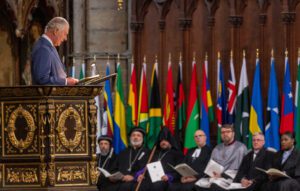At the 1998 World Conference on Youth, the origin of International Youth Day, the late Kofi Annan made his famous opening remarks: ‘No one is born a good citizen; no nation is born a democracy. Rather, both are processes that continue to evolve over a lifetime. Young people must be included from birth. A society that cuts itself off from its youth severs its lifeline; it is condemned to bleed to death.’
There is a fact that gives Annan’s sanguineous metaphor grim new meaning: violence is now the fourth leading cause of death in young people worldwide. Perhaps no other community of nations should seek to understand this fact more urgently than the Commonwealth; sixty per cent of our more than 2.4 billion citizens are under the age of 30. Here we explore three of our recently approved grants projects that are empowering youth so they can overcome this scourge.
‘Too often, discussions on violence in these communities are one-off events, occurring after policy decisions have been taken and without sufficient youth representation.’
In data released in 2017 by the UN, the murder rate in Jamaica stood at 57 per 100,000 of the population, the second-highest recorded rate in the world. Despite significant efforts to address this problem on the part of the Government of Jamaica, the young continue to be severely affected by violent crime as both victims and perpetrators. In a project that will last two years, Fight for Peace International will work in two of Kingston’s worst-affected neighbourhoods: Denham Town and Parade Gardens.
In designing this project, Fight for Peace focussed on how affected communities were being cut off from policy development and decision-making. Too often, discussions on violence in these communities are one-off events occurring after policy decisions have been taken and without sufficient youth representation. To counter this tendency, they will train 1000 youth and civil society leaders to formulate evidence-based recommendations during regular, specially organised meetings. This will provide youth groups with an opportunity to share their perspectives on security policies so, ultimately, these can be tabled at Jamaica’s Commission on Violence Prevention. Youth leaders will also be trained to deliver traditional and social media campaigns, giving them the tools to influence public discourse on the issue.
‘[In South Africa] an estimated 23 people are shot and killed every day, with the highest rates of death by homicide found among 15-29-year-olds.’
The same UN data that put Jamaica’s murder rate among the highest in the world ranked South Africa’s as eighth. Firearms play a significant role in the perpetration of violence in South Africa. The 2000 Firearms Control Act, which introduced measures such as stricter licensing, led to a significant decline in recorded shootings. Still, an estimated 23 people are shot and killed every day with the highest rates of death by homicide found among 15-29-year-olds. With a grant from the Commonwealth Foundation, Gun Free South Africa will support youth groups to deliver their input during the Control Act’s review in 2020. Young people with experience of gun violence will give oral presentations at public hearings to increase the impact of their recommendations. The organisation will also train youth groups to develop and implement safety initiatives in their communities, including the establishment of gun-free zones in schools and other public places. These initiatives will be coupled with awareness campaigns to mobilise support in favour of greater safety.
While young men are more likely to be the victims and perpetrators of violent crime both in Jamaica and South Africa, these projects will develop analyses and policy proposals that address the differing ways in which women and girls are affected, while ensuring they are fully represented at each stage.
Survey data collected in 2013 in Nigeria provides just a glimpse of the burden of violence shouldered by women: 28 per cent of women aged 15-49 have experienced some form of sexual violence. Of the woman surveyed, one in ten had experienced physical and/or sexual violence in the last 12 months alone. The Government of Nigeria has a clear policy framework in place to address the sexual abuse, violence and exploitation suffered by women and girls, including The Child Rights Act and the Violence Against Persons Prohibition Act. But neither has been ratified in all Nigerian states and serious problems persist throughout the country. For example, there has been an alarming rise in reports of so-called ‘baby factories’, in which women are forced to give birth to children who are then taken from them and sold into illegal adoption and potentially also for exploitation. Other reports suggest a worrying rise in the normalisation of abuse in educational settings.
Nationwide ratification of the key laws and their effective application would go a long way in confronting this trend. Grants partner Youth Alive Foundation have identified what they believe to be the principal obstacles to the first step of ratification: a lack of coordinated advocacy, low public awareness, and prevailing cultural beliefs. Their project will create an alliance working across five target states made up of parliamentarians, students, and civil society and media organisations. The alliance will start by carefully mapping existing laws and policies to identify gaps, and, by gathering data in tandem, they will produce authoritative guidelines on how to bring nationwide ratification closer.
Constructive engagement between civil society and government lies at the core of the Foundation’s strategy, and in this new cohort of projects, there is a discernible sense of civil society cooperating with governments and building on their work. These projects do this by broadening and deepening participation of youth groups to strengthen national legislation. They are aimed at achievable and institutionalised change and highlight the importance of including the voices of the young from which there is much to learn.
Leo Kiss is Communications Officer at the Commonwealth Foundation.
For information on our next grant call and all other updates on our grants programme please sign up here. Profiles for each newly endorsed project will be available on the Commonwealth Foundation’s project pages soon.








